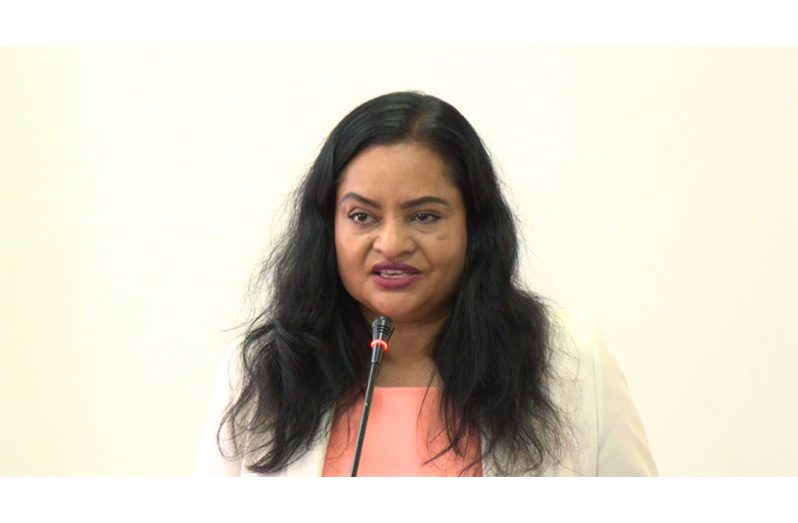—Minister Persaud warns youth about dangers of sharing intimate images
MINISTER of Human Services and Social Security, Dr Vindhya Persaud, is urging young people to think carefully before sharing intimate photos or videos, warning that the consequences of such actions can be emotionally devastating and long lasting.
Speaking on the Starting Point podcast, Dr Persaud said the ministry continues to highlight the risks associated with sharing nude photographs, particularly among young people who may not fully grasp the potential repercussions.
“We always talk about sharing nude photos in all programmes dealing with young people,” the minister emphasised. “People don’t think beyond the moment when they do those things. What could be the repercussions—the consequences—later on, when those things have the potential to be released?”
She explained that while some individuals may share intimate images as part of personal relationships, they often fail to consider how quickly circumstances can change. “A relationship can be wonderful this week, and next week it is not,” Dr Persaud said. “The thing is, everything can go on the internet… and it does… and it doesn’t disappear.”
According to the minister, the emotional and psychological toll of having private images leaked online can be severe. “We’ve seen a lot of young people become mentally unhinged because of those things. They go into depression, all kinds of things happen,” she said.
Dr Persaud noted that while individuals have the personal choice to engage in such actions, they must also take responsibility for understanding the potential risks. “It’s a personal choice to do that, but you have to think. If I do this, then what?” she cautioned.
At the same time, she made it clear that those who share or distribute such images without consent are not absolved of responsibility.
“Not that I am saying to the person who releases it… you get a free pass. Absolutely not,” the minister asserted. “Because you may have had a discussion about it, you may have agreed, but the reality is, we are living in a world where things change quickly.”
Dr Persaud stressed that once private material is uploaded or circulated, the damage is often irreversible. “The effects of that are devastating to a person when their photos are out there like that,” she said, noting that victims frequently experience trauma, humiliation, and social stigma.
In Guyana, the Cybercrime Act 2018 is the main piece of legislation that deals with the sharing of nude or intimate images/videos online and related offences.
Specifically, Section 19 of the Cybercrime Act 2018 makes it an offence to distribute intimate images of another person without their consent — often referred to as “revenge porn.”
A person convicted under this section is liable, on summary conviction, to a fine of $5 million and imprisonment for three years. Upon conviction on indictment, the penalty increases to a fine of $10 million and imprisonment for five years.
The Cybercrime Act 2018 also covers related offences such as: Cyber harassment and bullying, unauthorised access to personal data, use of electronic communication to cause emotional distress.
In addition to the Cybercrime Act, some cases involving minors may also fall under the Sexual Offences Act, if the sharing or possession of such images involves individuals under 18.




.jpg)










